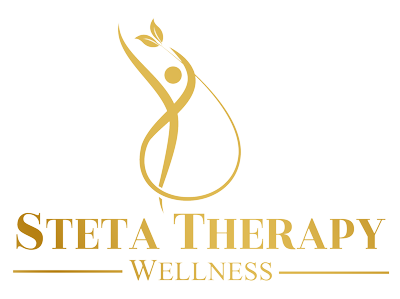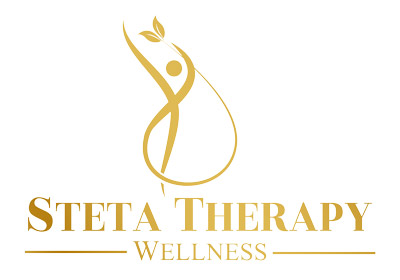
30 Oct Trauma Response: Escapism in the Horror Genre
If you are that type (Like me!)… Have you ever wondered why you’re drawn to horror movies, horror/ mystery books, or violent video games? Perhaps even more so during difficult times? You’re not alone. Many individuals find solace in scary content as a means of escaping real-life stressors, dysfunction, and/ or traumas. Horror can also offer a structured way to engage with difficult emotions. This phenomenon, known as “trauma response escapism,” can be a double-edged sword. While it may provide temporary relief through distraction and fantasy, it’s crucial to recognize when this coping mechanism becomes detrimental.
Escapism is often a response to stress, anxiety, or dissatisfaction with one’s life situation and can also be used as a way to refer to being emotionally numb. Escapism is a way to make feelings dissolve and disappear without engaging in the meaningful work to process and metabolize out the negative experience and feelings.
As Halloween approaches, understanding your relationship with horror and any penchant for thrill seeking, can help you navigate the season’s spooky offerings more mindfully.
Escaping into Horror: The Allure of the Scary for Trauma Survivors
For many individuals grappling with trauma histories and chronic life stressors, the horror genre offers a unique form of escapism. This seemingly paradoxical attraction to frightening content can serve as a powerful coping mechanism, allowing trauma survivors to immerse themselves in intense, dramatic, and even mind-bending content all while in the safety of their homes or chosen environment (such as a theater). It can also allow individuals to process their experiences in a controlled environment.
And for those individuals who do not have a trauma history (or rather, it might not be in their awareness), why is there such a pull towards this type of “horrific” content? Why do some people like to feel afraid? As mentioned in my Nurturing Mental Wellness blog, the nervous system becomes activated due to a range of stressors, on a continuum of slight surprise to terror. This activation can also be stimulating. The hormones adrenaline that is released can make the body feel electrified, ready, and even powerful. The so-called “thrill seeker” is an individual seeking out this somatic experience comes with the release of adrenaline and dopamine when engaging in a new, novel, exciting, and even dangerous experience. Watching a horror movie with jump scares or gore, engaging in a military style first person POV video game, or immersing oneself in the new Stephen King release (I’m an age-old fan of “It” myself!) can bring on moments of this felt experience, but in that controlled way.
Additionally, social expectations are thrown out the window and cultural taboos are on the table and fair game in these mediums. These narratives and plots further fuel curiosity for those individuals with an interest in understanding, and maybe even experiencing, non-sanctioned behaviors and activities by civilians or the everyday person (of course I am not indicating that any criminal behavior is sanctioned by society, of course I am generally and broadly speaking here!)
The therapeutic potential of horror
Horror films, video games, and literature provide a safe space for confronting fears and gradually desensitizing oneself to anxiety-inducing stimuli. According to Therapy for Black girls, the monsters and characters in horror media often symbolize real-life terrors, enabling trauma survivors to work through their experiences metaphorically. This form of escapism allows individuals to face their demons without directly confronting traumatic memories.
There can also be an element of comparison (whoa, that is so much worse than what I went through!) and can even fuel ones creativity and openness to differing experiences.
Self-Awareness and Moderation
While horror can be therapeutic, it’s crucial to practice self-awareness when engaging with scary content. Trauma response manifests differently for everyone, and what serves as catharsis for one person may trigger distress in another. It’s essential to recognize personal limits and know when the escapism becomes avoidance or potentially harmful. Pacing oneself, taking breaks, and processing content with a therapist or supportive friends can help maintain a healthy relationship with the genre.
Pay attention to your physical and emotional reactions. If you find yourself experiencing prolonged anxiety or sleep disturbances after consuming horror content, it may be time to reassess your engagement with the genre. Remember, what’s entertaining for some may be triggering for others, especially those with past traumas.
Practice Self-Management
Develop strategies to regulate your nervous system. This could include deep breathing exercises, mindfulness techniques, or physical activities to release tension. Healing from trauma involves an intentional pursuit of safety, both physically and emotionally. If you find that horror content is negatively impacting your well-being, consider seeking support from mental health professionals who can provide guidance on healthy coping mechanisms.
Navigating Halloween: Tips for Managing Trauma Triggers
Halloween can be a challenging time for those dealing with trauma responses. The abundance of scary content and experiences may trigger unwanted emotions or memories. However, with proper self-awareness and management strategies, it’s possible to navigate this season safely.
Recognize your Limits
Be mindful of your personal boundaries when it comes to horror genre content. According to research, people who enjoy horror often have a “fear sweet spot” – they like being scared, but not excessively. If you find yourself becoming overly anxious or distressed, it’s crucial to step back and reassess your engagement with frightening material.
Practice Self-Care
Implement self-management techniques to maintain emotional balance. This may include:
- Engaging in calming activities before and after exposure to scary content
- Setting limits for horror-related experiences
- Using grounding exercises if you feel overwhelmed
Seek Support When Needed
Remember, it’s okay to ask for help. If you find that consuming horror or violent media content (which tends to increase during Halloween season!) is causing significant distress or exacerbating trauma symptoms, consider talking to a mental health professional. They can provide guidance on healthy coping mechanisms and strategies for managing trauma triggers during this season.
By approaching your choices of media consumption with self-awareness and care, you can find a balance between participating in seasonal activities and maintaining your mental well-being. Escapism through the horror genre can be a form of entertainment, but it’s essential to recognize when it may be becoming avoidance or potentially harmful.
Conclusion
As you navigate this Halloween season and the media and entertainment that you engage in, remain mindful of your motivations and emotional responses. While scary content can provide a cathartic escape, it’s crucial to recognize when it when it becomes a crutch or exacerbates existing trauma. Practice self-awareness by regularly checking in with your feelings and setting healthy boundaries. If you find horror consumption interfering with daily life or causing distress, consider speaking with a mental health professional. Remember, it’s okay to opt out of Halloween activities that feel overwhelming. By approaching seasonal festivities thoughtfully, you can enjoy the thrill while safeguarding your mental well-being. Ultimately, your psychological health should always take precedence over cultural expectations or peer pressure.


Sorry, the comment form is closed at this time.